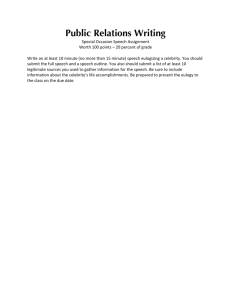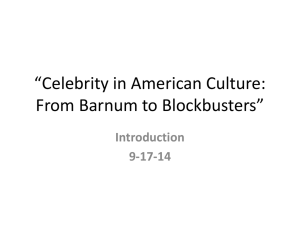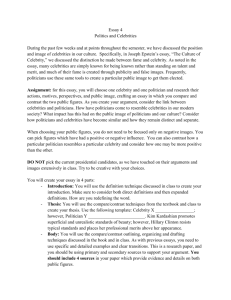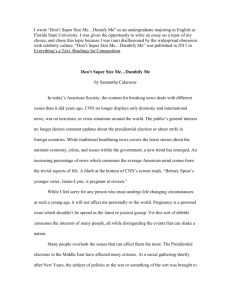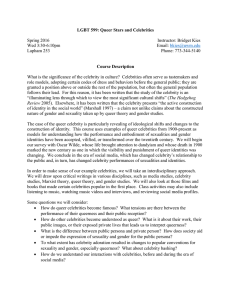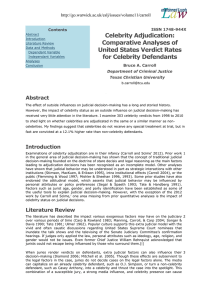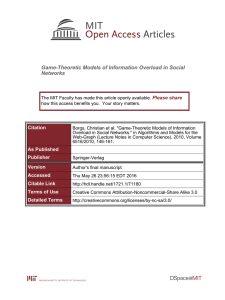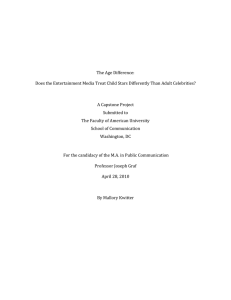Electric New Paper, Singapore 06-14-07 POLITICIAN or POLITICAL IDOL?
advertisement
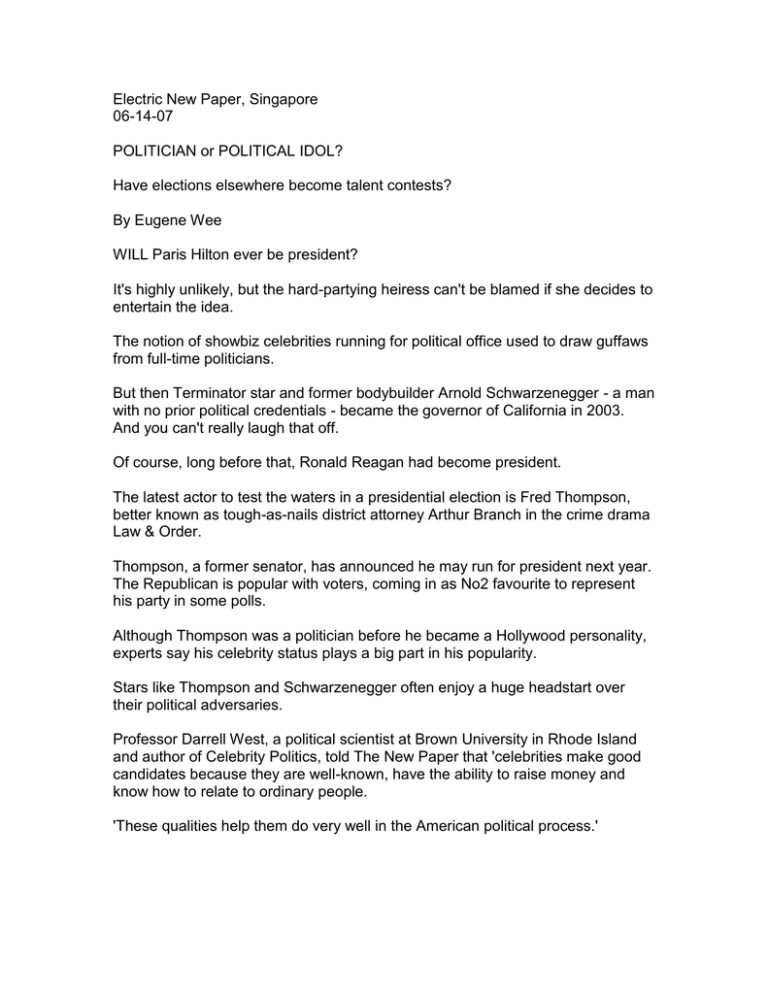
Electric New Paper, Singapore 06-14-07 POLITICIAN or POLITICAL IDOL? Have elections elsewhere become talent contests? By Eugene Wee WILL Paris Hilton ever be president? It's highly unlikely, but the hard-partying heiress can't be blamed if she decides to entertain the idea. The notion of showbiz celebrities running for political office used to draw guffaws from full-time politicians. But then Terminator star and former bodybuilder Arnold Schwarzenegger - a man with no prior political credentials - became the governor of California in 2003. And you can't really laugh that off. Of course, long before that, Ronald Reagan had become president. The latest actor to test the waters in a presidential election is Fred Thompson, better known as tough-as-nails district attorney Arthur Branch in the crime drama Law & Order. Thompson, a former senator, has announced he may run for president next year. The Republican is popular with voters, coming in as No2 favourite to represent his party in some polls. Although Thompson was a politician before he became a Hollywood personality, experts say his celebrity status plays a big part in his popularity. Stars like Thompson and Schwarzenegger often enjoy a huge headstart over their political adversaries. Professor Darrell West, a political scientist at Brown University in Rhode Island and author of Celebrity Politics, told The New Paper that 'celebrities make good candidates because they are well-known, have the ability to raise money and know how to relate to ordinary people. 'These qualities help them do very well in the American political process.' Another ex-politician who has gained Hollywood-star status is former US vicepresident Al Gore, whose popularity has soared since his global-warming awareness movie, An Inconvenient Truth, won an Oscar. Since the win, fans have been clamouring for him to throw his hat into the ring - a move he has said is unlikely but not out of the question. Prof Steffen Schmidt, a political scientist at Iowa State University, explained that celebrities command a lot of name-recognition power due to the mediacentric nature of US society. 'John F Kennedy was the first president to 'win' a debate that was televised because he was a great performer and looked great on TV,' he said. Click to see larger image 'Ever since that first debate - against Richard Nixon, who looked very bad and ill on TV - celebrity has been an important political advantage.' And even if you are not a showman yourself, getting the backing of those in showbiz usually helps. For example, presidential hopeful Barack Obama was seen to have gained the upper hand over fellow Democratic candidate Hilary Clinton after Hollywood moguls Steven Spielberg, David Geffen and Jeffrey Katzenberg apparently switched their endorsement from the latter to the former. 'Candidates love celebrity endorsements and celebrity fund raising,' said Prof West. 'It shows they have strong support in the arts and entertainment area and gives them credibility in the popular culture.' DISADVANTAGE TOO Not all celebrities can be formidable political candidates. Virginia University political scientist Isaac Wood pointed out that celebrity can turn into a curse if the electorate has reason to believe that the candidate is not serious, unable to perform the duties of the office, or if something in his or her past life has led to revelations that make him or her unelectable. 'One example of this is (Hustler magazine publisher) Larry Flynt, who ran for US president and governor of California, but was unable to shake off the image of an adult publisher no matter how he tried to represent himself,' he said. Past missteps in the life of celebrities are also likely to be better known to the public considering their high-profile lifestyles. But even if they enjoy a good reputation, do showbiz celebrities, especially those who have no political experience, have a place in politics? Prof Mark Rozell, a professor of public policy at the George Mason University in Virginia, said that in some respects, it makes sense for actors to be in politics. 'An elected representative is someone who engages in a kind of role-playing every day,' he explained. 'He or she has to adopt positions on issues in order to represent the views of others and this requires being able to identify with or understand groups of people, or constituents. 'Actors too engage in a kind of role-playing that requires establishing a connection with a group, or audience. It is the act of placing oneself in the position of others that makes acting similar in some ways to representing people.' Celebrities can be effective as politicians, said Prof Schmidt. 'Sometimes the celebrities can help draw people to become interested in politics who have never been,' he explained. 'So I think it can be a great thing as long as the celebrity is smart and knows how to pick good staff.'
